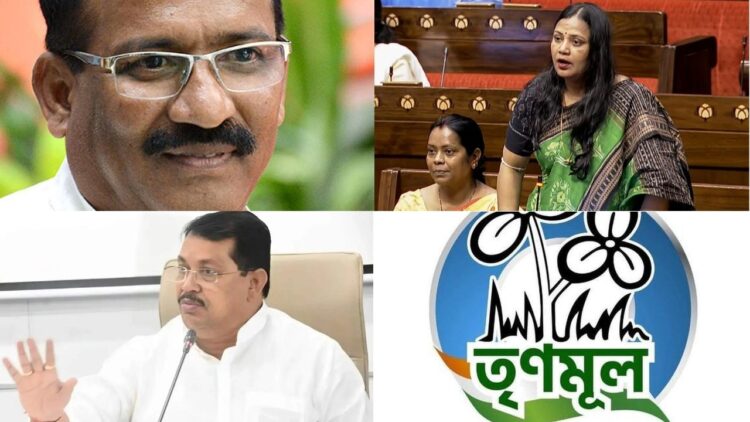In the aftermath of the horrific Pahalgam terror attack, where 26 innocent civilians were brutally killed by Islamic terrorists on April 22nd, political figures from various parties have come under scrutiny for dismissing the religious profiling of victims. A number of prominent leaders, including that of Congress have not only denied the facts but also downplayed the nature of the attack, while undermining the testimonies of the victims’ families.
Dismissing Victim Testimonies: Politicians Reject Claims of Religious Profiling
Biju Janata Dal (BJD) Rajya Sabha MP Sulata Deo was one of the first to dismiss the reports of religious profiling, claiming that the terrorists wouldn’t have had time to ask about the victims’ religion. “The number of people that died and the time it took to kill them, it is not at all possible to ask about religion or check religion in that time,” Deo asserted, dismissing the possibility of religious profiling and accusing the victims’ families of fabricating their accounts. Her statement effectively cleared the terrorists of any religious motives, painting the attack as a random act of violence, despite the overwhelming evidence to the contrary.
Maharashtra MLA Vijay Wadettiwar Casts Doubt on Terrorists’ Religious Targeting
Similarly, Maharashtra Congress MLA Vijay Wadettiwar sought to downplay the religious aspect of the attack, saying, “The government is saying that terrorists killed people after asking them (about their religion). Do terrorists have time for all this?” By questioning the victim testimonies, Wadettiwar implied that the terrorists’ motivations were irrelevant and dismissed the specific targeting of Hindus. His comments, aimed at appeasing his voter base, have drawn significant criticism for ignoring the larger context of religious violence.
Karnataka Minister R.B. Thimmapur Denies Religious Angle, Points to Intelligence Failure
R. B. Thimmapur, a Congress Minister from Karnataka, echoed similar sentiments, stating, “I personally don’t think the assailants would have asked the name and religion of the tourists.” Thimmapur suggested that focusing on the religious angle was an attempt to cover up a failure in intelligence. His dismissal of the religious profiling further muddies the truth behind the terror attack and distances himself from the stark reality presented by victims.
TMC Leader Marjina Khatun Diverts Blame Toward BJP, Spreads Conspiracy Theories
Trinamool Congress (TMC) leader Marjina Khatun took a more politically charged route by attempting to deflect blame onto the BJP. Alleging that the BJP orchestrated the attack to divert attention from the new Waqf law, Khatun claimed, “BJP provides safe haven to terrorists. This was why there was no army personnel there.” In an attempt to deflect from the Islamic terrorists responsible for the massacre, Khatun resorted to spreading conspiracy theories, questioning the role of the BJP in creating a communal environment.
The Brutal Reality: Victims Targeted Based on Religion, Confirmed by Multiple Testimonies
However, despite these claims, victim testimonies present a starkly different narrative. According to multiple accounts, the terrorists specifically targeted Hindu victims, forcing them to identify themselves, display identification cards, recite Islamic prayers, and even prove their religious identity by showing signs of circumcision. Of the 26 people killed, 24 were Hindu by faith, while all the terrorists involved were Muslim.
Politicians’ Denials Contradict Victim Accounts, Raising Questions About Their Motives
The attack has raised serious questions about the nature of the violence, with many believing that the victims were intentionally profiled based on their religious identity. However, the response from these political leaders appears to undermine the victims’ suffering and the reality of religious terrorism.
Continued Efforts to Whitewash the Terror Attack and Shift Focus from Religious Violence
As the investigation into the Pahalgam terror attack continues, the role of political leaders in minimizing the true nature of the incident remains a contentious issue. Their attempts to whitewash the attack and shift focus away from the clear religious motive are being viewed by many as a disservice to the victims and their families.

















Comments